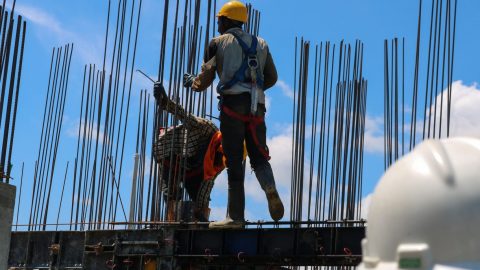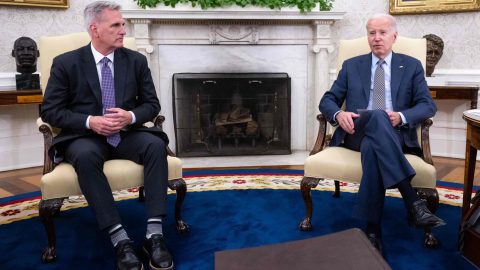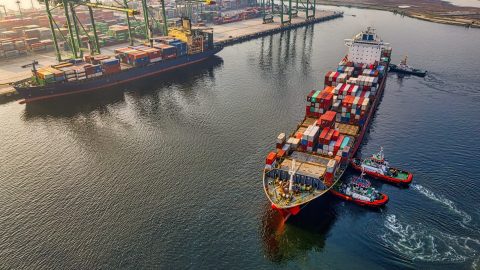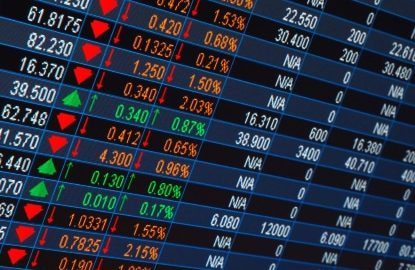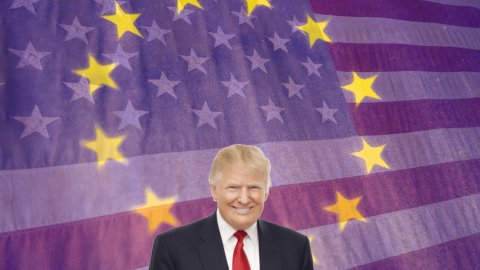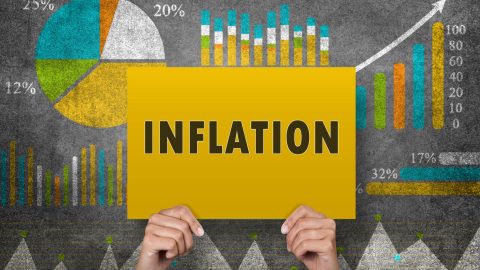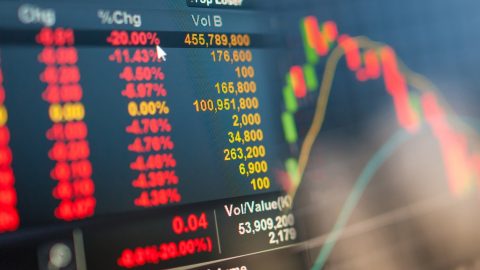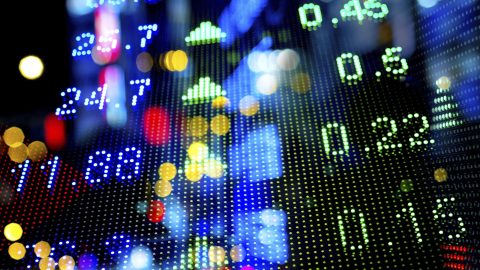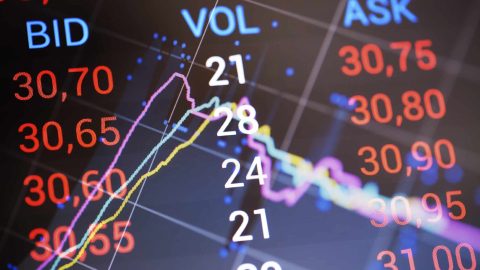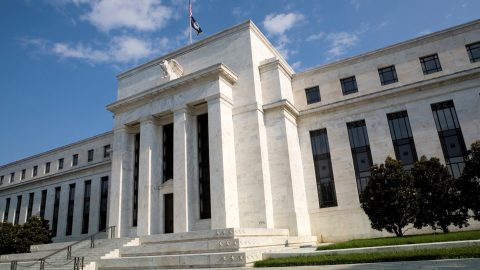Articles about “economic growth”
Increasing optimism for a “soft” economic landing
While equities have recently risen, yields on the bond market have weakened. The markets are being supported by increasing hopes of a “soft” landing for the economy. What are the chances of this scenario?
US labour market: strong employment growth
Surprisingly good figures came from the US labor market in the previous week. Despite the strong growth in employment, however, economic growth has recently been rather meager. Recession risks also remain at an uncomfortably high level.
Meager Growth
Global growth is likely to cool significantly in the second quarter. At the same time, recession risks remain uncomfortably high, as Chief Economist Gerhard Winzer writes in his market commentary. The further course of negotiations on the US debt ceiling is also likely to cause tension on the market.
Game Changer
The current crisis of confidence continues to dominate market activity and has significantly increased uncertainty about the future development of economic indicators. Read more in the current market commentary by Chief Economist Gerhard Winzer.

WIIW Forecast Sees Eastern European EU Countries Well-Equiped to Handle Consequences of War and Inflation
For this year, experts at the Vienna Institute for International Economic Studies (WIIW) expect economic growth of 3.3% on average for the EU members in Central, Eastern and Southeastern Europe.
Growth fears
Inflation has been the underlying factor in economy for some time. A recovery of GDP on a pre-pandemic level should be reached soon. The probability of a growth phase has increased. What further developments are expected?
Falling economic momentum is not bad news
One of the most important economic indicators, the global purchasing managers index for the manufacturing sector, fell in June compared to the previous month. Is that bad news for risky asset classes like stocks? Our chief economist Gerhard Winzer analyzes the most important scenarios.
Yield curve management
In recent days, equities and other risky asset classes have come under pressure despite the fact that in the year to date the optimism about an economic recovery has been on the rise. Is that a case of “buy the rumour, sell the fact”? Had the good news already been priced into the market? Or is there another mechanism that could be driving the future development?
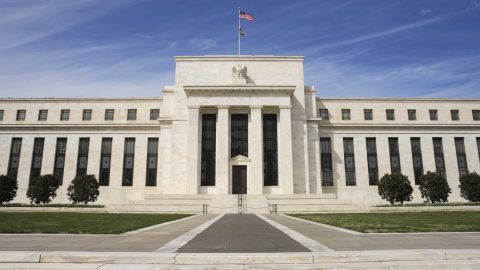
Coronavirus: US rate cut and now what?
The corona virus leaves traces in financial market policy. The US Federal Reserve cut interest rates surprisingly early on Tuesday. Erste AM chief economist Gerhard Winzer explains this measure in our interview.
USA: Inverse yield curve fuels fear of recession
In the US bond market, the yield on two-year government bonds had risen above the yield on ten-year bonds, creating the rare situation of an inverse yield curve. This was last the case in 2007.
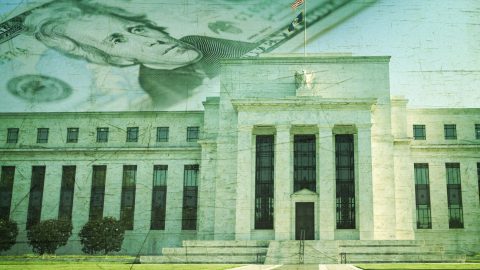
Constructive central banks
Risky asset classes such as equities have recorded price increases at the beginning of the year. The core question for the investor is: Is this recovery after the sharp decline in Q4 sustainable or not?
Financial markets 2018: reasons to be cautiously optimistic
The financial markets have been on the rocks in 2018. Read here why you should still keep a cautiously optimistic stance.
Germany remains Europe’s driving economic power
Germany is not only the largest, but also one of the strongest economies in the Eurozone and the EU. This is reflected, among other things, in its stable economic growth. In 2017, Germany’s GDP increased by 2.2 per cent compared to the previous year, only slightly less than the total Eurozone growth of 2.4 per cent.
Protectionism: Risk of a trade war with the US?
The announcement by the US President, Donald Trump, to levy import tariffs on steel (25%) and aluminium (10%) has made waves. Can the favourable economic environment be toppled an will we see a trade war between the US and the EU?
Quo Vadis Italia? – The 2018 general election in Italy and its importance to the economy
The economic environment for Italy remains challenging. The fundamental problem is the low economic growth. Although the composition of the future government is still unclear, the party programs imply a persistent reform deadlock.
How does inflation work? – Part 2: Inflation drivers
There are many factors that may affect inflation. Also, the weights of certain factors may vary across countries. Take the development of the exchange rate, for example.
Inflation worries burdening stock exchanges – part 2: the macro perspective
Equity indices have undergone a global correction in the past days. The Dow Jones index has shed more than 10% from its January high. What is the macro-economic reason for the correction?
Strong growth and rising rates
At the beginning of 2018, economic indicators are confirming the recovery scenario. Above all, the yields of government bonds are on the rise. Why is that the case, and what does it mean for the financial market as a whole?
Global equities: Five charts on where we stand
2017 was an excellent year for stocks. Developed markets were up more than 16% in local currencies, emerging markets almost 28%. How will the markets develop in 2018?
2017: a positive year on the global capital markets
Capital markets recorded a positive year of 2017. The performance of the various asset classes was of the textbook variety: the higher the risk, the higher the return.
Solid Growth
Some ten years after the outbreak of the Great Recession, global economic growth is positive and broadly based, inflation is low in the developed economies and falling in important emerging economies, and monetary policies are very supportive, cautious, and predictable. At the same time, company earnings growth has increased significantly, and the volatilities of many asset prices are low. This environment is generally positive for risky asset classes.
ECB takes another tiny step
Economic growth in the Eurozone has embarked on a clear upward trend. At the same time, the fear of falling wages and prices has disappeared for now. The worries over a possible break-up of the European Union have also eased. Against this backdrop, the ECB President Draghi issued a slightly more optimistic growth forecast yet again on 27 April at the press conference of the European Central Bank. This is another tiny step indicating a possible reduction of the monetary support in the medium term.
Losses reflect economic worries
The losses on the stock exchanges and in other risky asset classes unsettle investors. The additional expansive signals sent by the central bank support markets, albeit only by a minor degree. From an economic perspective there are no convincing signs for a trend reversal. The current correction is due to permanently low growth and to […]
Will 2016 be “The Good”, “The Bad“ or „The Ugly“?
The beginning of Q4 is the time for an outlook on the coming year. At first we want to establish the determining factors for the economic activity and the markets. On this basis, we will introduce three scenarios.
All eyes on Washington: Will the Fed funds rate be raised?
Interest rate decision by the Fed Tomorrow, Thursday 17 September 2015, the federal Open Market Committee (FOMC) of the US central bank Fed will be taking an important decision. Is the Fed funds rate to be raised or not? The financial markets have accorded this decision a particularly important role. After all, the rate hike […]
Emerging countries under pressure
Commodity prices have fallen drastically since the beginning of July. The commodity price index provided by Bloomberg has fallen by nearly 12%. In fact, many commodity prices are locked in a bear market. The index is currently almost 50% below the level of the beginning of 2011. Over the same period the currencies of emerging […]
Market and fundamentals
Weak growth Real global economic growth was surprisingly weak in Q1. The preliminary estimate for the annualised growth rate of Q4 2014 to Q1 2015 is only 1.5%. This is mainly due to disappointingly weak growth of the GDP in the USA (+0.2%), in China (+5.3%), in the UK (+1.2%), and in Japan (+1.5%; estimate). […]
China – the biggest economy in the world
The new normal The importance of China for the global economic and financial system continues to grow at a rapid pace. Last year the country set a new milestone by becoming the world’s biggest economy. The total value of goods and services produced in a year exceeds that of the United States. Thus, at 30% […]
Macro data: Dynamics down
The dynamics of the economy and the markets have declined. Global economic growth is down on a quarter-on-quarter basis, the two most important trends of the past months (appreciation of the US dollar and falling oil price) have come to a halt, inflation is not falling anymore, and the US Fed has put a damper […]
Two canaries in the coalmine
The US dollar has appreciated significantly vis-à-vis the euro in the past months. For this trend to continue, at least two developments would have to be in place. Firstly, the US Fed would have to abandon its zero interest rate policy; and secondly, the ECB would have to remain on its path of negative interest […]
Boon and bane
The driving topics on the financial markets are the stabilisation of the oil price, mixed economic indicators globally vs. positive economic indicators for the Eurozone, the temporary decline in escalation risk, and the expansive central bank policies.

